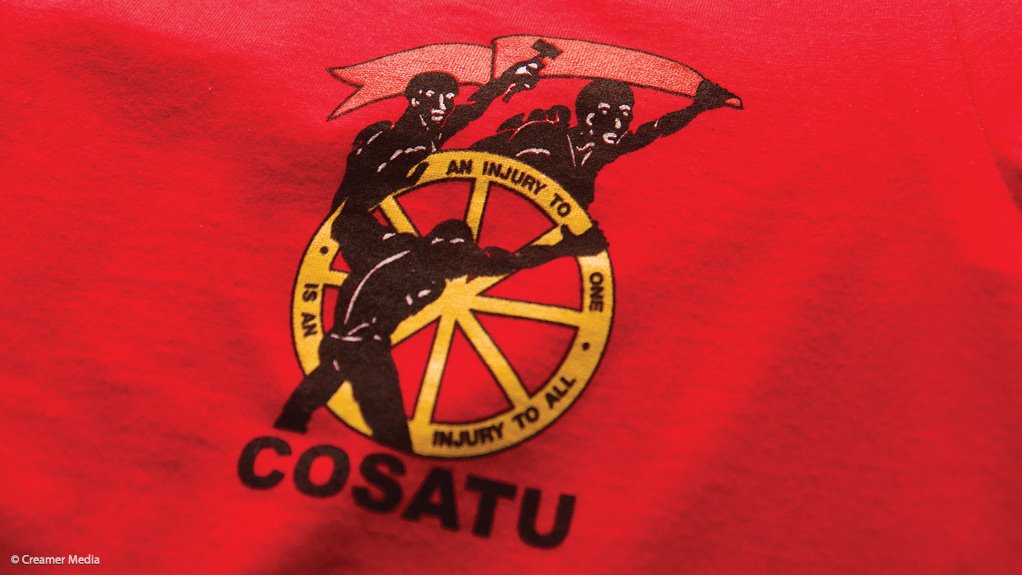The Congress of South African Trade Unions (Cosatu) on Wednesday said it would cost some R8-billion to extend the temporary employer/employee relief scheme relating to the Covid-19 pandemic for another two months and the refusal to do so smacked of contempt for workers.
In a submission to Parliament’s standing committee on finance, Cosatu said the Cabinet and Unemployment Insurance Fund (UIF) had reneged on a decision in September by President Cyril Ramaphosa to let the timeframe of the scheme (TERS) match that of the state of disaster declared over the health crisis.
“Despite this public commitment by the president and that the extension of the TERS is legally binding under the existing disaster management regulations, the UIF has refused to do so,” it said in a submission responding to last week’s medium-term budget policy statement (MTBPS) tabled in Parliament.
Despite there being engagements between government and social partners on this matter at the National Economic Development and Labour Council (NEDLAC), the country’s National Coronavirus Command Councill had taken a unilateral decision last week to cancel the TERS, Cosatu said, adding:
“This is another example of government having no compassion for workers and the poor.”
The federation said the decision would see companies and workers flout remaining Covid-19 restrictions and put the country at a heightened risk of a second spike in infections.
It argued that the UIF’s assets were currently worth R114-billion, allowing ample scope to extend the benefit to December.
“Coverage for these additional two months would be less than R8-billion,“ it said.
“It is a far more prudent intervention to save jobs and companies with a few months’ payments than to allow them to be lost and to then have to pay 12 months’ worth of retrenchments benefits and to then lose those workers’ contributions to the UIF, taxes and the broader economy.”
It called out government for claiming credit for the fund disbursing R51 billion to businesses and workers since the state of disaster was announced in March.
“Government despite the obligations of the Unemployment Insurance Amendment Act of 2018, has refused to contribute a single cent towards it.“
“In fact, throughout this lockdown period, Cosatu and other labour federations and organised business at NEDLAC have had to time and again force government to extend its relief for distressed workers. Government had wanted to cut funding in June,” it said.
Cosatu said the government’s stance raised a question as to whether the UIF should continue to fall under the department of labour or be placed under the direct control of business and labour.
Apart from extending TERS payments in tandem with the extension of the national state of disaster, the government and social partners must consider longer term options to save jobs and businesses as the country navigates its worst economic crisis in a century, it argued.
“Engagements at NEDLAC need to take place on a new more sustainable model beyond January to see what the UIF, SARS, Treasury and the banks could all contribute to saving jobs and businesses.”
Cosatu said it appreciated the fiscal crisis Finance Minister Tito Mboweni warned of last week when he tabled the MTBPS, but opposed his plans to push through with a public service wage freeze to rein in spending.
“Government is approaching the fiscal crisis by outsourcing the responsibility to workers and not addressing the root causes,“ it said.
Mboweni had ignored the four fundamental reasons for the crisis, namely the loss of about R150 annually in wasteful expenditure, the loss of capacity at the revenue service, “massive bailouts” to parastatals and a stagnant economy that bled jobs, the federation added.
The public wage bill had remained stable at 35 percent of the national budget since 2009, and a pay freeze would see a decline in front-line services, Cosatu claimed.
“It is unacceptable that government is shifting the blame for a broken state upon the backs of nurses and police officers. It is politicians and senior managers, their friends and relatives that have stripped the state dry. They now want to outsource the bill to workers,“ it said.
The MTBPS noted that public service compensation now accounted for 11 percent of gross domestic product compared to nine percent in 2004/05 and in briefings last week Mboweni indicated he was not prepared to rethink his stance.
He told MPs he hoped a public servants’ strike could be avoided but said fiscal consolidation was his most crucial consideration.
EMAIL THIS ARTICLE SAVE THIS ARTICLE
To subscribe email subscriptions@creamermedia.co.za or click here
To advertise email advertising@creamermedia.co.za or click here











